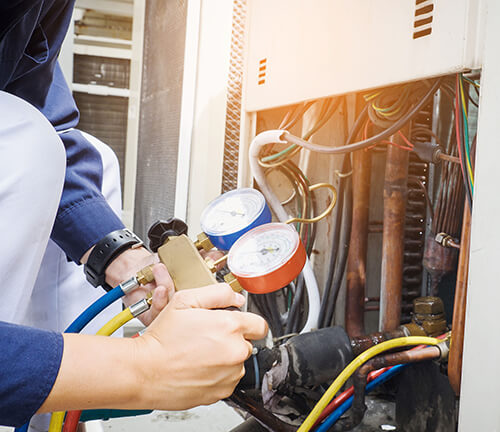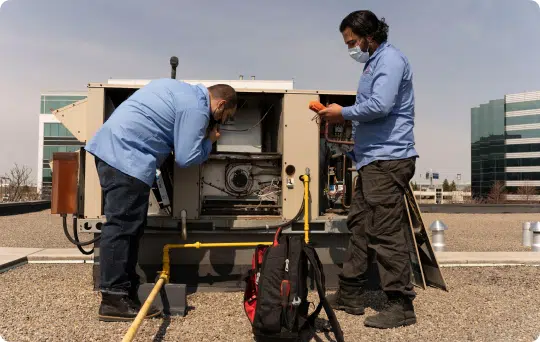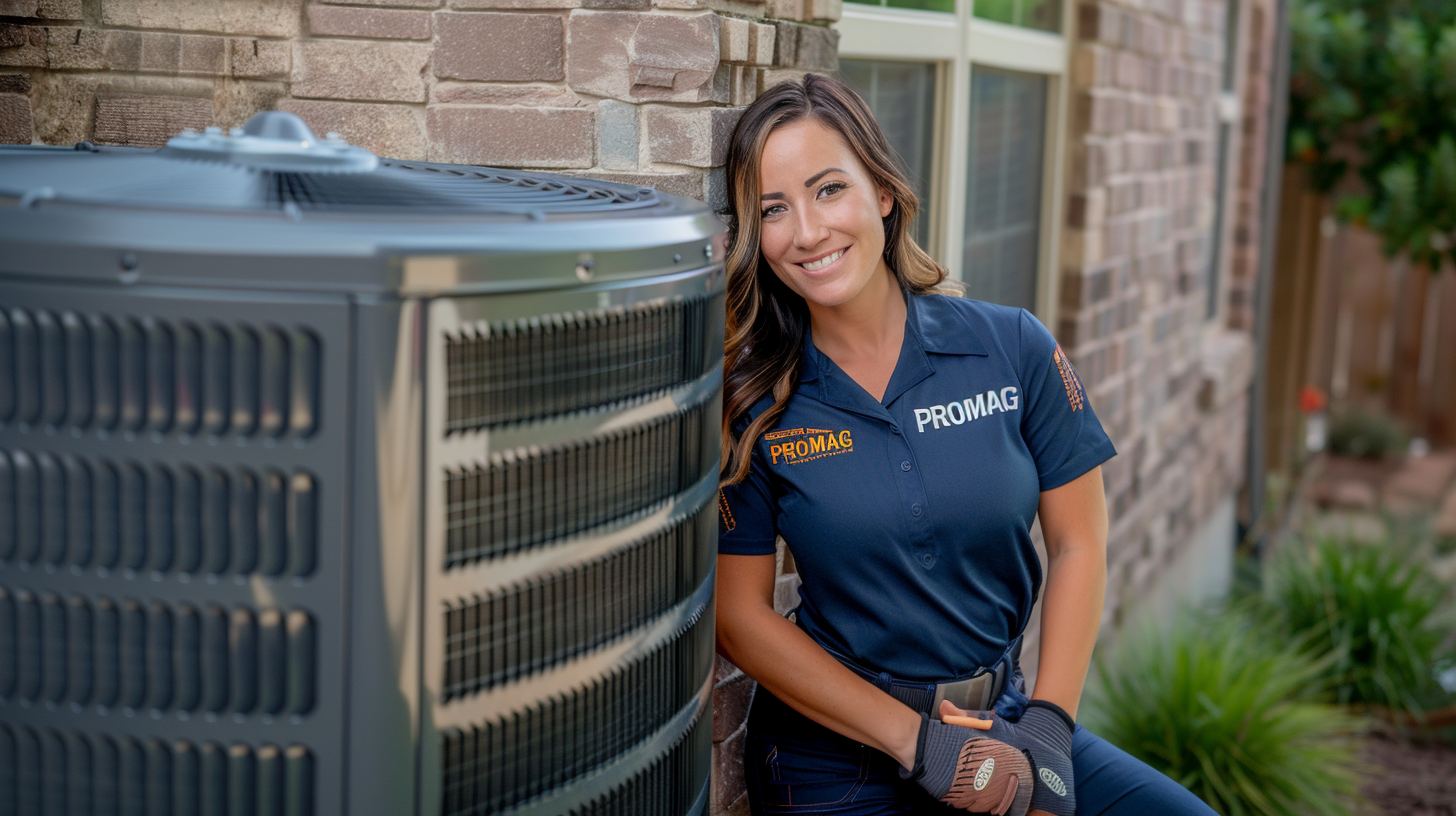Eco-Friendly Systems Installed by DMAKS HVAC Experts.
Eco-Friendly Systems Installed by DMAKS HVAC Experts.
Blog Article
Energy-Efficient Cooling And Heating Equipments to Reduce Utility Bills
As power expenses remain to increase, the value of energy-efficient a/c systems comes to be significantly apparent. These systems not just assure considerable cost savings on energy expenses yet also add to a more sustainable future by lessening power intake. With various choices offered, consisting of geothermal warmth pumps and ductless mini-splits, homeowner encounter a multitude of choices that can boost convenience and air quality. Understanding the essential attributes and maintenance needs is vital to making the most of these benefits. What factors should be focused on when picking the ideal system for your requirements?
Advantages of Energy-Efficient HVAC Equipments
Energy-efficient Cooling and heating systems supply numerous advantages that expand beyond plain expense savings. By consuming less power, these systems add to lower greenhouse gas exhausts, aiding to fight environment adjustment and advertise sustainability.
In addition, energy-efficient cooling and heating systems often offer improved comfort levels. Much of these systems include advanced technology that enables much better temperature control and boosted air quality (DMAKS HVAC). This results in a much healthier interior atmosphere, which is particularly vital for individuals with allergies or respiratory issues
In addition, purchasing energy-efficient heating and cooling systems can boost property value. As even more consumers focus on energy efficiency, homes and buildings equipped with these systems may draw in higher bids in the actual estate market.
Types of Energy-Efficient Heating And Cooling Options
Exactly how can house owners and organizations choose one of the most suitable energy-efficient cooling and heating choices for their demands? The marketplace supplies a selection of energy-efficient cooling and heating systems, each made to improve comfort while decreasing energy consumption.
One alternative is the variable refrigerant circulation (VRF) system, which effectively manages the temperature in multiple zones within a building. This system adjusts its refrigerant flow to match the wanted temperature, causing significant power cost savings.
One more popular choice is geothermal warmth pumps, which make use of the earth's secure temperature level to warm and amazing spaces. By moving warmth to and from the ground, these systems show impressive performance, specifically in moderate climates.
Additionally, ductless mini-split systems provide an energy-efficient alternative for homes lacking ductwork. These systems enable for zone-specific cooling and heating, lowering energy waste in empty locations.
Finally, high-efficiency furnaces and ac system, with innovative SEER and AFUE scores, use dependable environment control while taking in much less energy than standard models. By examining these choices, house owners and businesses can choose a HVAC system tailored to their specific demands and energy effectiveness objectives.
Key Attributes to Consider

Following, examine the kind of compressor utilized in the system. DMAKS HVAC. Variable-speed compressors can change their outcome to match the heating or cooling need, causing improved convenience and power savings contrasted to single-speed designs. Additionally, seek systems equipped with clever thermostats that use programmable setups and remote accessibility, enabling for better control over power consumption
An additional vital function is the system's air filtration capability. High-efficiency filters can enhance indoor air top quality and reduce power usage by making sure the system runs efficiently. Additionally, consider the kind of refrigerant made use of; modern systems usually use environment-friendly cooling agents that have a reduced environmental impact.
Lastly, guarantee that the system is suitable with zoning modern technology, which enables for personalized temperature level control in various locations of learn the facts here now your home, boosting comfort while lessening energy use.
Tips for Picking the Right System


Next, take into consideration power effectiveness ratings, especially the Seasonal Energy Clicking Here Performance Proportion (SEER) for cooling systems and the Yearly Gas Usage Effectiveness (AFUE) for heating systems. Greater ratings show higher effectiveness, which can bring about significant cost savings on utility bills over time.
In addition, evaluate the kind of cooling and heating system that ideal suits your lifestyle and budget. Alternatives consist of air conditioning, ductless mini-splits, and heatpump, each with its own set of advantages and disadvantages.
Don't forget the relevance of appropriate installment and sizing; an inaccurately sized system can lead to inefficiencies and boosted wear. Seek advice from with a professional HVAC professional to obtain expert referrals tailored to your home's special requirements. This comprehensive strategy will certainly make sure that you choose an energy-efficient HVAC system that satisfies your requirements and spending plan effectively.
Maintenance for Optimal Performance
When the appropriate cooling and heating system remains in location, ongoing maintenance becomes key to ensuring optimum effectiveness and longevity. A properly maintained system runs better, causing reduced energy usage and minimized utility costs. Routine inspections and tune-ups ought to be scheduled a minimum of two times a year-- when prior to the air conditioning period you can try here and once prior to the heating season.

Home owners must additionally be attentive about checking their HVAC system's efficiency. Uncommon noises, fluctuating temperatures, or raised power costs can suggest underlying concerns that call for instant interest. By addressing these worries quickly, property owners can avoid expensive repair work and expand the life-span of their systems.
Investing in a maintenance plan with a qualified service technician not only improves performance however additionally supplies tranquility of mind, knowing that the system is operating at its best. DMAKS HVAC. Normal maintenance is consequently important for maintaining power performance and reducing general functional prices
Verdict
In verdict, energy-efficient HVAC systems present a practical service for minimizing energy bills while enhancing comfort and air quality. By incorporating innovative modern technologies and alternatives such as geothermal warmth pumps and ductless mini-splits, homeowner can achieve considerable energy cost savings and add to ecological sustainability. Cautious factor to consider of system functions and recurring maintenance further guarantees ideal efficiency, making energy-efficient systems a sensible financial investment for both economic and eco-friendly benefits.
Report this page